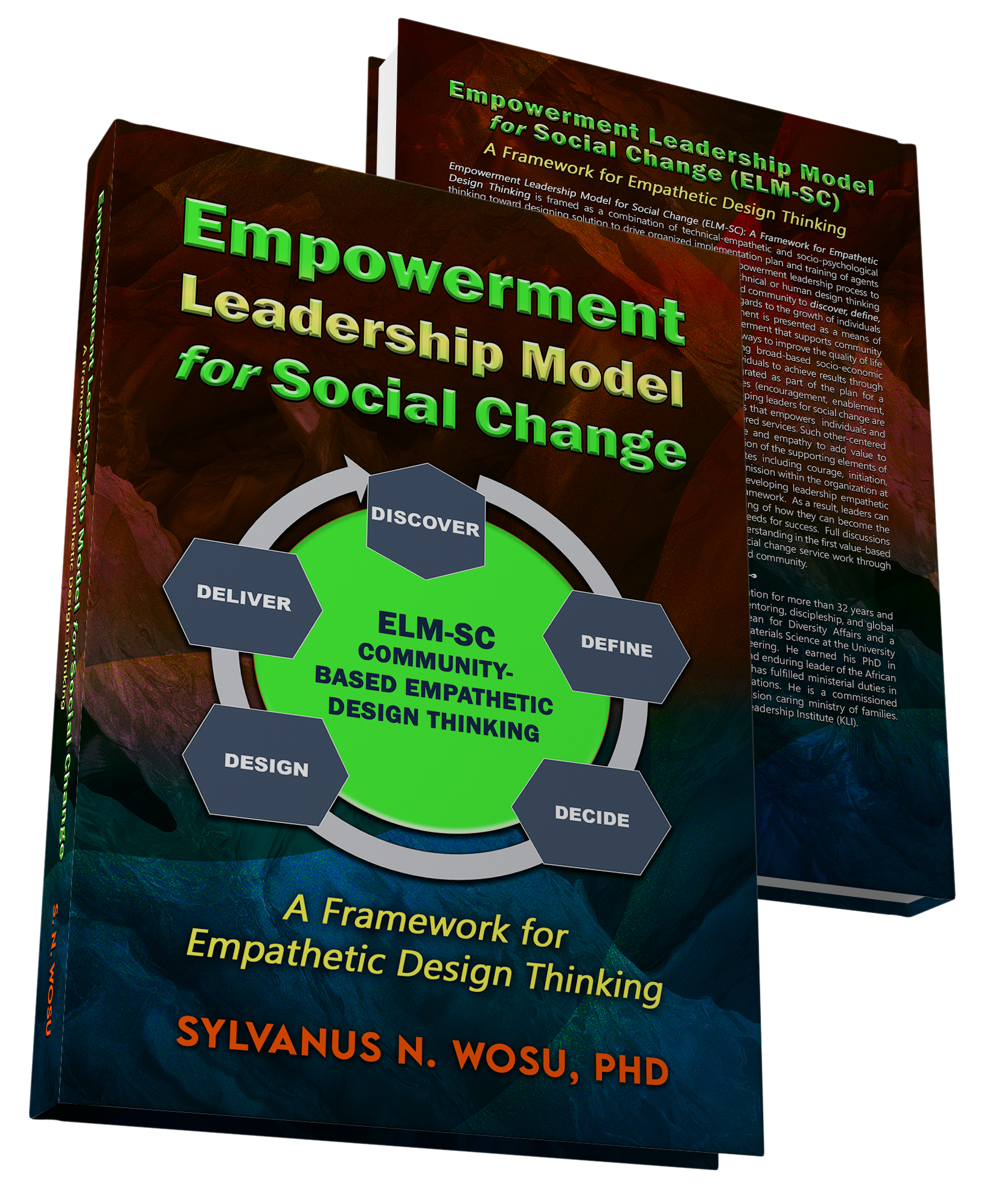Book

Book 5
Empowerment Leadership Model for Social Change (ELM-SC): A Framework for Empathetic Design Thinking is framed as a combination of technical-empathetic and socio-psychological thinking toward designing solution to drive organized implementation plan and training of agents involved in social change. The ELM-SC design integrates the empowerment leadership process to achieve social change design as a joint effort with a different technical or human design thinking mindset that empathetically engages the individuals, followers, and community to discover, define, decide, design, and deliver the desired social change. With regards to the growth of individuals and communities as an outcome of societal impact, empowerment is presented as a means of empowering people and organizations through personal empowerment that supports community well-being. Leadership training guide is provided to teach agents ways to improve the quality of life and well-being of humanity and as a mechanism for effecting broad-based socio-economic transformation. Intentional acts of developing and enabling individuals to achieve results through education, training, and access to material resources are integrated as part of the plan for a sustainable change. The key empowerment leadership attributes (encouragement, enablement, empowerment (power sharing)), and others with respect to developing leaders for social change are presented in the context of a transformational leadership process that empowers individuals and followers for maximum productivity in other- or community-centered services. Such other-centered service is intentional and intrinsically motivated by selfless love and empathy to add value to humanity in the different marginalized situations. Detailed discussion of the supporting elements of a transformative empowering leader’s interactions and attributes including courage, initiation, motivation, vision, influence, and the reproduction of vision and mission within the organization at the center of any leader’s focus are included with respect to developing leadership empathetic mindset to social change in each of the four dimensions of the framework. As a result, leaders can move through this work as they build a progressive understanding of how they can become the transformative leader at the micro levels that their organization needs for success. Full discussions on leadership empathy set up the groundwork on empathetic understanding in the first value-based imperative and how leaders might cultivate future leaders for social change service work through direct and hands-on engagement in the lives of the individuals and community.